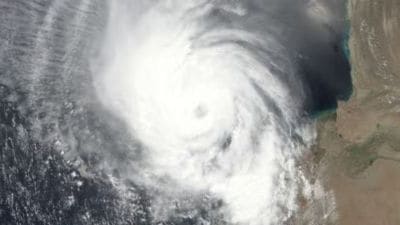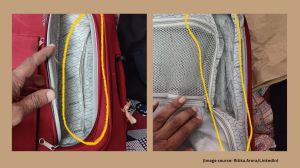10 yrs hence, Saddam still haunts the West
LONDON, AUGUST 1: Ten years after he sent his army to invade neighbouring Kuwait, Iraqi President Saddam Hussein is still in power, having...

LONDON, AUGUST 1: Ten years after he sent his army to invade neighbouring Kuwait, Iraqi President Saddam Hussein is still in power, having defied every effort by the United States, domestic opponents and some of his neighbours to unseat him.
He has not only outlasted former US President George Bush, who led a coalition that drove Iraqi forces out of Kuwait in the 1991 Gulf War, but will soon have outlasted Bush’s successor, Bill Clinton, who leaves office next January.
"Saddam still haunts and taunts us, but he’s on the defensive and he is basically contained. It may not be much of a policy but does anyone know a better one?" said a US official requesting anonymity.
"We prevent him from threatening his neighbours and keep the pressure on in the hope that someone will get lucky one day and oust him, but there’s not much we can do to hasten that day," the official said, outlining current Western policy.
Meanwhile, the Iraqi people continue to suffer under UN sanctions, imposed in the wake of the invasion and maintained officially because Iraq has not cooperated with international efforts to eliminate its weapons of mass destruction.
Baghdad has not allowed arms inspectors to return since the United States and Britain launched a four-day air campaign in December 1998, codenamed Operation Desert Fox’, to punish Saddam for obstructing UN monitoring efforts.
The Gulf War coalition has fractured, with France and Russia opposing the US and British policy of sustaining sanctions and using periodic bombing to "keep Saddam in his box".
So has Western policy failed, and is there a realistic alternative?
"Sanctions have backfired and underpinned the regime instead of weakening it. They make it easier for Saddam to control the flow of food and money. The priority should go to the removal of the regime," says Mustafa Alani, a London-based Iraq analyst.
"Yet there is no realistic strategy for ousting Saddam and no strategy to deal with post-Saddam Iraq, which is bound to cause a crisis in the region," Alani said.
Like many critics, including humanitarian organisations, he argues that the West needs a policy mix that relieves civilian suffering, allows a rebuilding of Iraq’s shattered civil society and targets Saddam’s ruling elite more effectively.
The US and British officials say that’s easier said than done. They argue that Iraq has been successfully contained and that a UN resolution passed last December, offering to suspend sanctions on civilian goods if Saddam complies with a new arms monitoring system, makes the policy sustainable.
"It is entirely up to Saddam, if he wishes to halt the sanctions and end the suffering of the Iraqi people, to comply with resolution 1284," said a British Foreign Office spokesman.
He pointed to an expanded oil-for-food programme under which Iraq is now allowed to sell as much oil as it can produce to buy food and medicine for its population, arguing that shortages are created artificially by Saddam for propaganda purposes.
The former chief UN weapons inspector, Richard Butler, wrote in the Washington Post on July 17 that Saddam was busy trying to rebuild his weapons of mass destruction capability.
"I’ve seen evidence of Iraqi attempts to acquire missile-related tools and, even more chilling, of steps the Iraqis have taken to re-assemble their nuclear weapons design team," Butler said.
US analysts say there is no serious pressure from Gulf Arab states to lift sanctions or remove the US forces based in Saudi Arabia, Kuwait, Bahrain and now Qatar which enforce the military containment of Iraq.
"The policy has a lot of room because the Gulf Arabs are letting us get away with it. Gulf Cooperation Council statements are consistently supportive of US sanctions policy," said Steven Simon, a former US National Security Council official now at the International Institute for Strategic Studies.
Diplomats say some Gulf leaders were privately disillusioned that US military action against Iraq had not been more decisive, but they would still rather have containment than be exposed to an unconstrained, vengeful Saddam.
In 1991, in the immediate aftermath of the Gulf War, the West stood aside as Saddam used helicopters and tanks to crush uprisings by Kurds in the North and Shi’ite Muslims in the South which had posed the most serious threat to his rule.
Subsequent attempts to trigger a coup failed and an effort by the US Central Intelligence Agency to foment an uprising by opposition forces trained and based in Kurdish areas of northern Iraq ended in a fiasco in 1996 when Saddam sent tanks to capture the town of Irbil and CIA agents fled, leaving compromising documents and Iraqi collaborators to his mercy.
Removing Saddam has never been an official goal of UN policy, but the United States adopted that aim in a 1998 Iraq Liberation Act that provided $97 million to train and finance the Iraqi opposition.
US officials acknowledge that effort is rhetorical and half-hearted, partly because the Clinton administration does not trust the splintered and fractious Iraqi opposition in exile and partly because there is no stomach for risking American soldiers’ lives to try to bring Saddam down.
The Republicans argue they would pursue Saddam’s removal more aggressively than the Democrats, giving more aid to the opposition and possibly using US Air power to support them. But most analysts argue that while a George W Bush administration might talk tougher on Iraq, it would probably end up doing exactly the same because there is no realistic alternative policy.




- 0114 hours ago
- 0214 hours ago
- 0314 hours ago
- 0414 hours ago
- 0515 hours ago



























